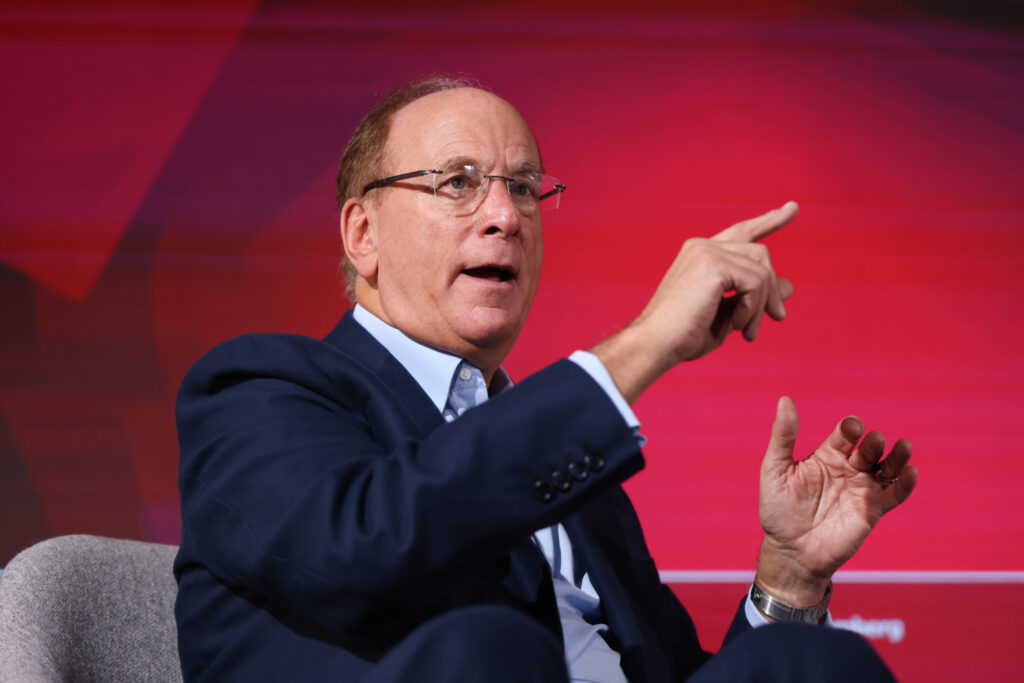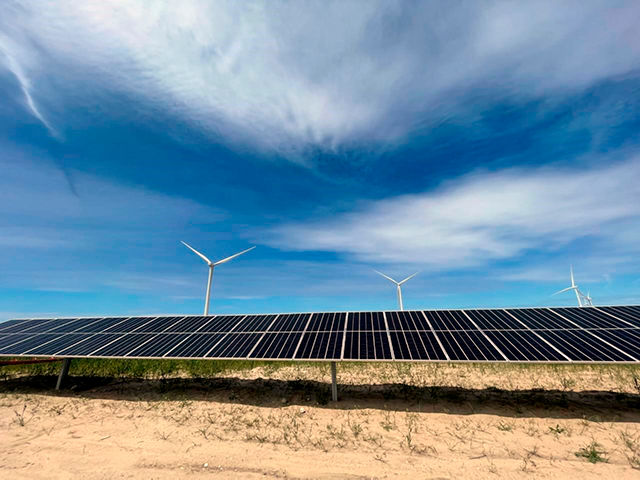Consumer advocates, economists, and other experts have discussed how Environment, Social, and Governance (ESG) investments have contributed to the decades-high inflation America continues to experience.
“ESG-driven inflation is pushing higher prices on hardworking American consumers and forcing taxpayers to pay the bill for the progressive agenda of megalomaniacs like BlackRock CEO Larry Fink,” Will Hild, the executive director of Consumers’ Research, told Breitbart News in a statement. “With supply chains still being disrupted and prioritization of liberal political goals forcing higher prices at the grocery store and the gas pump, it’s clear ESG is a major factor.”

Larry Fink, chairman and chief executive officer of BlackRock, speaks at event on the sidelines of the opening day of the World Economic Forum (WEF) in Davos, Switzerland, on Tuesday, Jan. 17, 2023. (Hollie Adams/Bloomberg via Getty Images)
ESG investing is the latest vector through which leftist Wall Street firms pressure corporations to adopt social and political positions, such as divesting from the oil and natural gas industries, increasing diversity requirements on corporations, and other leftist goals.
Now that the economy continues to trend toward a recession, business executives have said they plan to abandon ESG practices. According to a KPMG survey, 59 percent of CEOs said in October they plan to either “pause” or “reconsider” their ESG plans over the next six months.
David Henderson, a research fellow at the Hoover Institution, and Marc Joffe, a senior policy analyst with the Reason Foundation, explained in the Wall Street Journal how ESG priorities would lead to inflation:
ESG investing and the management practices it promotes, however, usually increase production costs and constrain capacity. If a company diverts resources into a formal diversity, equity and inclusion program, with all its attending human-resource hires and bureaucracy, it will have less resources available to conduct product research and development. Similarly, if a company whose core competence is oil and gas production chooses to move into wind and solar despite having limited expertise in these modes, its output will suffer. In general, an investment framework that de-emphasizes production in favor of social objectives will divert money away from efficient producers—in the same way taxes will.
…
If enough companies focus on ESG priorities, then, they risk higher inflation and slower growth or stagflation.
"As more financial leaders scrutinize so-called sustainable investing, there’s ample evidence suggesting ESG exacerbated the 9.1% increase in the consumer price index." via @RealClearEnergy https://t.co/DfsiwB1k0n
— RealClearPolitics (@RealClearNews) August 1, 2022
Henderson and Joffe continued, “To get the U.S. economy back on a path to sustainable growth and low inflation, the Fed must rein in excess liquidity, as it is now doing. But that alone won’t be enough. Businesses, investors and those advising them must push back on ideas such as ESG that undermine corporate productivity.”
Seema Shah, a chief global strategist at Principal Global, labeled ESG’s push away from fossil fuels “greenflation.” Shah said the push towards net-zero climate change policies “created a chain reaction resulting in higher energy prices and, ultimately, higher consumer costs.”
Gabriella Hoffman, a senior fellow at the Independent Women’s Forum, wrote, “Instead of playing politics, corporations should revert back to their original mission of creating value in business. If they truly care about starving inflation and not passing costs down to consumers, they must immediately reassess stakeholder capitalism and reverse course.”
Although Americans have become more aware of the dangers of ESG investing, Breitbart News Economics Editor John Carney has noted that the war against ESG is over.
Carney explained the conflict between Ukraine and Russia has exposed the need for domestic production of fossil fuels:
The Democrats have denied being at war against fossil fuels, even though Joe Biden promised to “end fossil fuels” on the campaign trail and his first actions as President of the United States included anti-fossil fuel policies such as the cancellation of the Keystone pipeline and embracing the Paris Climate Accord. Putin’s invasion of Russia was the shock that finally dispelled the illusion of a free and easy transition away from fossil fuels. This forced Biden to spend much of last year begging the Saudis for more oil and chastising American drillers for not drilling more.
Sean Moran is a policy reporter for Breitbart News. Follow him on Twitter @SeanMoran3.

COMMENTS
Please let us know if you're having issues with commenting.